The Julia Roberts Theories
Monday is about movies. And sometimes TV. Today, Julia Roberts. I have two theories about her. They’re linked. Here I am kinda thinking/typing out loud…bear with…
I have two theories about Julia Roberts. And they run parallel. The first is that through largely careful management of her career she has managed to mask a possibly limited range and make herself incredibly adaptable as well as always palatable. She is nobody’s least favourite actor. How could she be? She’s been in a bunch of absolutely-close-enough-to-bangers! She isn’t always the best thing on screen — but you never leave the theatre or the remote control in a huff, saying damn Julia Roberts ruined that! Etc…
She is also all genres. Pretty much. Need someone to goof it up in a comedy (My Best Friend’s Wedding) or play stoic (Stepmom) or be actually very convincingly dramatic (Leave The World Behind) or simply part of an ensemble (Steel Magnolias) or, you know, both (Closer) then she’s a casting agent’s dream.
She brings instant A-list mana and kudos to all of the roles now, and has done since she was in her mid-20s. A few films into her CV she was even cameo-ing as herself (The Player) — such was her impact. (And we’ll get to that in a bit. She’s even done voice roles (The Ant Bully,Smurfs: Lost Village), been a documentary narrator (Makers: Women Who Make America) and stacked a bunch of Exec Producer credits along the way; becoming the first actress (I’m using the term here because Hollywood still does, and it’s relevant — I prefer the all-gender Actor) to bank $20m for a single role.
And, when it is required she can drift back into something so easy, almost lazy, because it plays on the knowledge of her as forever Pretty Woman - think: Notting Hill, Runaway Bride, America’s Sweethearts, Valentine‘s Day, and, most recently Ticket To Paradise.
Also, if and as required she can be hiding in plain sight as part of an ensemble in solid or great movies, or even slightly so-so movies, and it is seemingly never reputation-ally damaging (oh, um, I dunno: Michael Collins, Everyone Says I Love You, Ocean’s Eleven/Twelve, Full Frontal, and August: Osage County).
When Roberts was in her early 20s she was in a few films no one really cared too much about. Like Satisfaction. I saw that because I’ll always watch any fictional film about rock ‘n’ roll and pop music. This film is a dud for sure, but I remember thinking it was charming at the time, because it wasn’t trying to be anything more than it was. Anyway, Roberts wasn’t the star, this was all about launching Justine Bateman (Family Ties) and I was probably also watching the film because I love Family Ties but, anyway…
I also watched, and liked, Steel Magnolias, but it wasn’t for any one person. It was for the story. And the ensemble. And if it was for any one person in particular it was Dolly Parton. The reverse is true — I’ll not only watch any corny film that purports to be about rock ‘n’ roll but hardly ever is, I’ll also watch almost any and every big-name musician as they try out for the world of serious film acting. But, yeah, Roberts was part of the ensemble.
What launched her was Pretty Woman. A film I must have seen - well, I know I have, but I really don’t know it well at all. In fact, I’ve been thinking I must re-watch it, see how it flies, see if it’s super problematic, or just fine, see if I can remember it being anything really at all. I know it mostly for a banging-good soundtrack. And because everyone knows it. It’s in the popular culture. It is what launched Julia Roberts after all.
After that, and I mean immediately after that, she was a star. And I enjoyed Flatliners, and Sleeping With The Enemy and Dying Young. The former I’d have liked anyway, but the latter two required Roberts and she was perfectly cast in them. I really enjoyed re-watching Sleeping With The Enemy recently, as part of a routine drive-by of 90s thrillers.
After that, mid-90s, it’s all the things: appearing as herself in The Player, playing part of a huge ensemble in Pret-A-Porter, doing weak-but-fun things like Pelican Brief, and I Love Trouble, and Something To Talk About. And that’s really that. Just these films tumbling out, that are fine, she is bankable, and nobody is getting hurt.
Then in 2000 she plays Erin Brokovich, a power-role in a little film that could, and did. Okay, so it had a $50m budget, Roberts took $20m home for her role and Steven Soderbergh was in the director’s chair. So it wasn’t like anyone was betting against this film exactly. The test audiences liked it, but the execs were worried that people wouldn’t love hearing Julia Roberts swear. They got that so wrong. People loved it. They loved the outfits. The sass. The acting. The story. The fact that it was a classic based-on-a-true-story. The works. All of it. And it was huge.
And Roberts walked off with not only an Oscar but, in some sort of amazing sweep, also a BAFTA, a Golden Globe, a Critics’ Choice and a Screen Actors’ Guild award.
And so this is where the second theory collides with the first.
Would Julia Roberts mean anything or be anywhere near as teflon without that instant kudos for the credibility bank? I mean, does it even matter is the obvious question to all of this. Sure.
But I was watching Dying Young and Sleeping With The Enemy a while back and thinking they were great, and it got me to wondering why I’d never rewatched Pretty Woman. Then I watched the recent Netflix film, Leave The World Behind — which I liked very much. And I thought that Roberts was great, but that, also, she didn’t really do anything. I guess what she didn’t do, was put a foot wrong. And that’s when I started thinking about all of this.
Last weekend, I finally watched Ticket To Paradise, a fucking horrific blur of never-needed-to-happen romantic comedy and hopeless re-run of everything dire in that line of cinema across the last 30 years. A sort of New Taylor Swift Album As Movie, if you like. And I thought, hmm, maybe it really was all about her winning that Oscar for Erin Brokovich. The timing of it in her career. The announcement that this was a Serious Actor, with chops. Up until then, it’s fair to say she had been marketed almost solely around her looks.
I don’t know. I’m getting close to sounding like a silly white man here. I mean, even more so than I normally do. I just thought this was interesting really. I told my wife that I had an interesting theory or two about Julia Roberts. She just stared at me. So now I’m telling you lot, I guess…
But also, my favourite thing about Julia Roberts has always been that she has a brother called Eric Roberts. And that he’s been in about 45,000 movies, and won’t turn down a thing, yet no one cares about him at all. That must be some fun family reunions eh.
So, yeah, those are my theories on Roberts — she’s been cleverly cast to cover a mid-tier range. She had early success and just as that was dying down, she cannily picked up the role of a lifetime and ran with it all the way to the bank, and to critical acclaim and awards galore. Since then, she’s been able to do what she likes, and never ever gets it wrong. Even with fucking turkeys like Ticket to Paradise. Amazing really. Full respect.
And yes, I’m now off to remind myself of the definition of a ‘theory’.




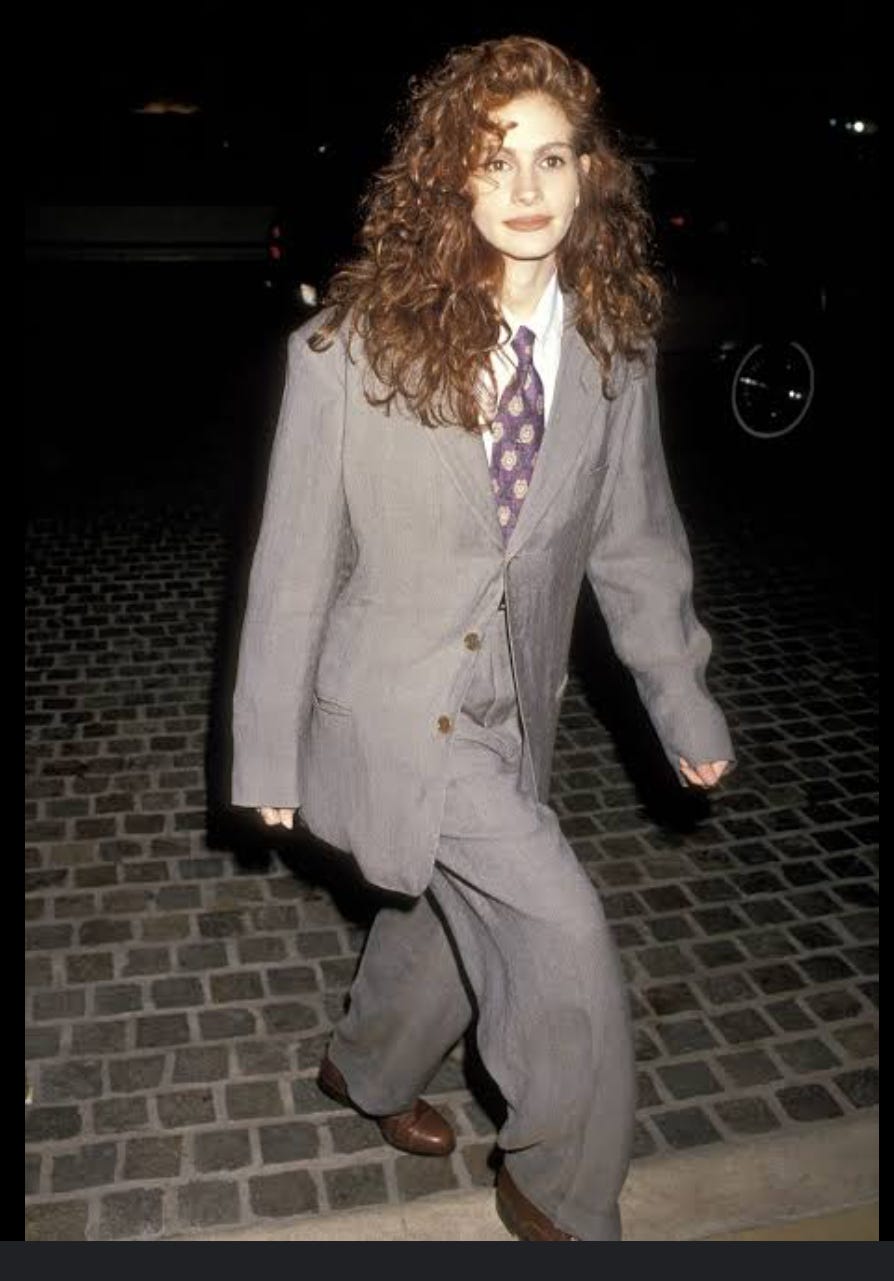
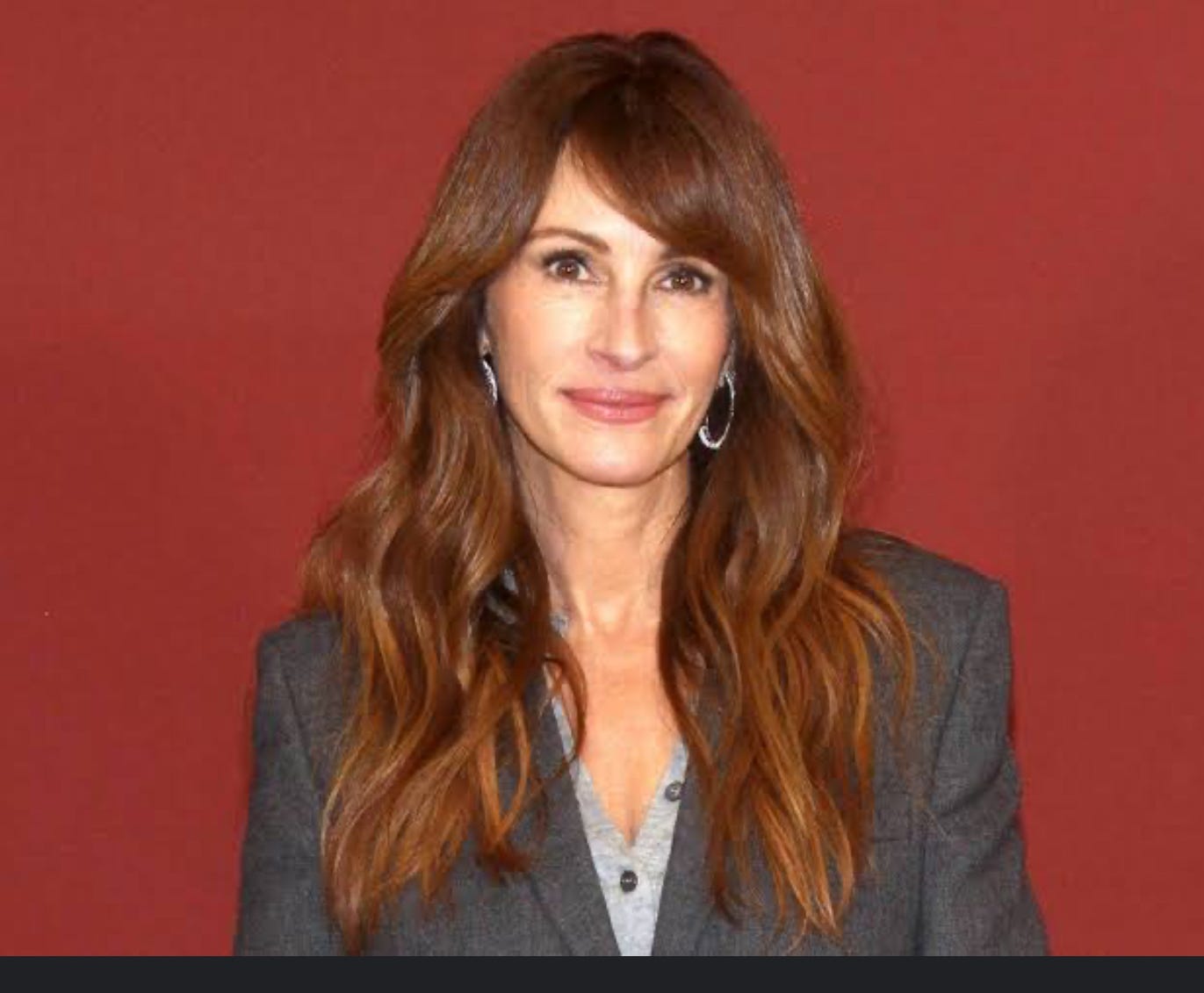
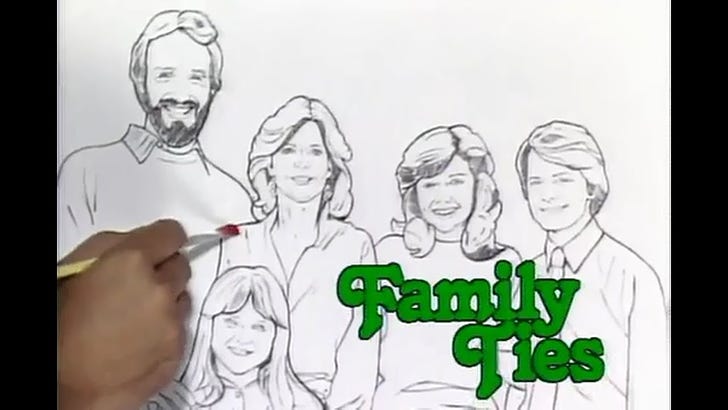
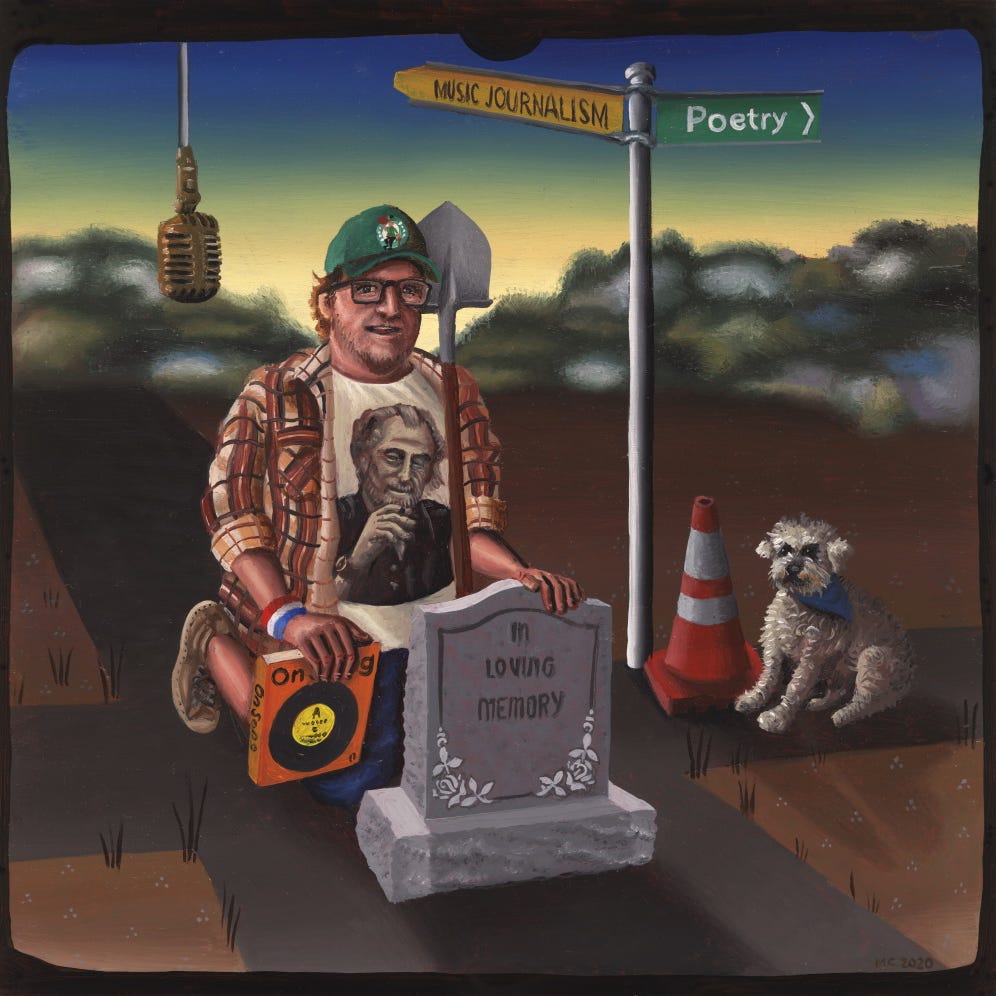
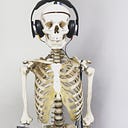
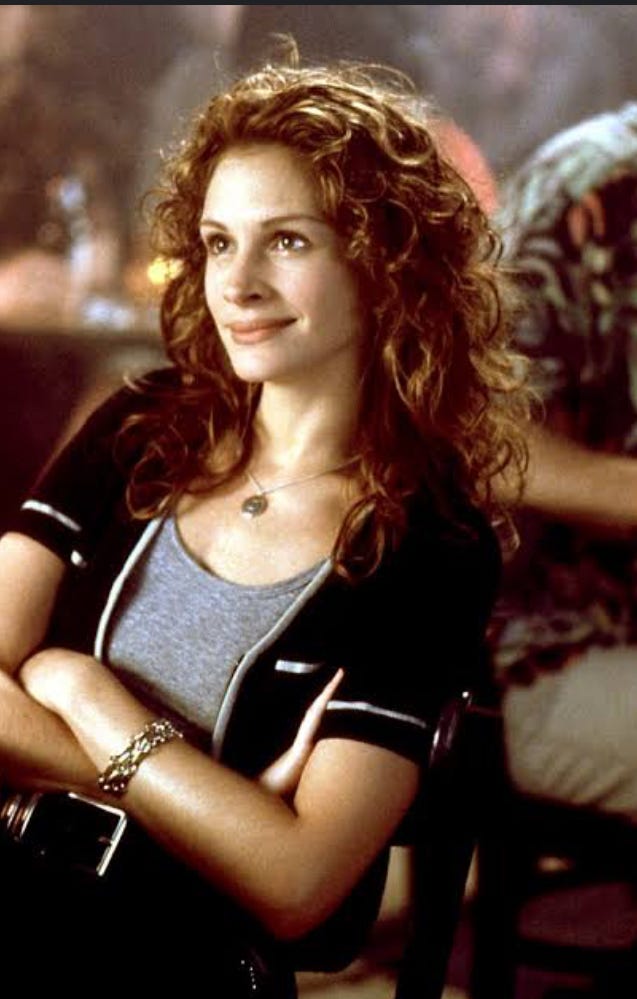
So, if I'm understanding, your first theory is that Julia Roberts covered up for a lack of talent with careful project selection, and the second is that she achieved career longevity by lucking into Erin Brockovich. I think those both qualify as theories. Though I suspect her casting in Erin Brockovich was because a producer requested a "Julia Roberts type".
I feel that we should still use the term "actress' when someone is obviously playing a gendered role, especially if that's all they do. Like, if you've gone to the trouble of playing a woman convincingly, and that's your specialty, on and off the screen, let's respect that, not pretend we didn't see it.